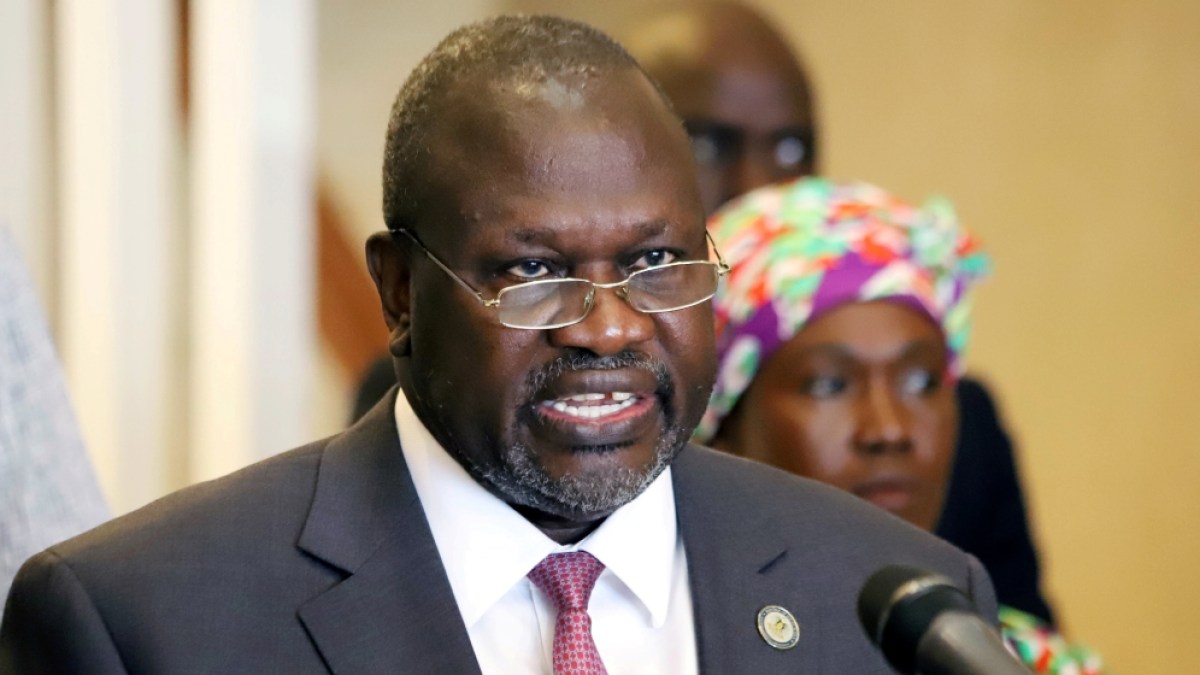After nearly 14 years of war in Syria, the new government is resetting its regional relations, and a lot of focus is on what will happen with Israel.
There are reports of talks between Syria and Israel, with timelines even being floated for potential normalisation between the two countries, which have technically been at war since the 1948 Arab-Israeli war.
Here’s what you need to know about possible normalisation between Syria and Israel:
What has happened so far?
Syria and Israel have held direct talks, according to Israeli media, about potentially entering into a normalisation agreement.
Communication between the two states has reportedly been facilitated by the United Arab Emirates, which established a backchannel for contact.
Any agreement would likely be an extension of the Abraham Accords, an agreement brokered by the United States between some Arab states and Israel.
The Abraham Accords were a top-down approach by Donald Trump during his first term as US president to get Arab states to formalise relations with Israel.
They were signed in August and September 2020 by the UAE and Bahrain, and soon followed by Sudan and Morocco.
Since then, Trump has worked to expand the accords by pushing more countries to sign agreements with Israel.
Trump visited three countries in the Middle East in May, and, while in Saudi Arabia, he met Syria’s new president, Ahmed al-Sharaa, and reportedly encouraged him to normalise relations with Israel.
Is normalisation possible?
Possibly down the road, analysts say, but right now it would be nearly impossible, according to Syrian writer and author Robin Yassin-Kassab.
There is a deep enmity between Syria and Israel, which heightened during the 1967 Arab-Israeli war and Israel’s occupation of the Syrian Golan Heights.
Israeli Defence Minister Gideon Saar said his country would insist on its occupation of the Golan Heights in any deal with Syria, and the Israeli army has gone deeper into the Golan, occupying homes and expelling people from the area.
Many Syrians would oppose giving up the Golan to Israel, according to analysts. Still, many might welcome common-sense negotiations.
“Syrians are split … because on the one hand people are exhausted, everyone recognises Syria cannot defend itself or fight Israel … so it’s good [al-Sharaa’s] negotiating,” Yassin-Kassab said, adding that a return to an agreement like the 1974 ceasefire is the most realistic option.
About a week after then-President Bashar al-Assad fled Syria in December 2024, Israel’s parliament voted on a plan to expand settlements in Syria – illegal under international law. There are currently more than 31,000 Israeli settlers in the occupied Golan Heights.
Syria, under al-Sharaa, has said it is open to peace with Israel and that it would uphold a 1974 ceasefire agreement between the two states, but Israeli Prime Minister Benjamin Netanyahu announced on December 8 – the day al-Assad fled to Moscow – that he viewed the agreement as void.
Israel attacked Syria repeatedly, destroying much of its military infrastructure and seizing Syrian territory near the border with Syria’s Golan Heights.
Syria would likely ask for Israel to withdraw from the newly occupied area under a new non-aggression deal, though reports say the Golan Heights have not yet been discussed.
 Syrian Foreign Minister Asaad Hassan al-Shaibani shakes hands with US Special Envoy for Syria Thomas Barrack in Damascus, Syria, May 29, 2025 [Firas Makdesi/Reuters]
Syrian Foreign Minister Asaad Hassan al-Shaibani shakes hands with US Special Envoy for Syria Thomas Barrack in Damascus, Syria, May 29, 2025 [Firas Makdesi/Reuters]What moves have been made lately?
In recent days, Israeli officials have said they are open to a deal with Syria, and Netanyahu reportedly asked US Special Envoy Tom Barrack to help negotiate one.
Israel’s National Security Council head, Tzachi Hanegbi, has reportedly been overseeing discussions with Syrian officials. The talks include a US presence and are in “advanced stages”, according to senior Israeli officials who spoke to The Times of Israel.
Figures close to al-Sharaa are reportedly asking for an end to Israeli aggression without Syria having to accept full normalisation, Lebanese daily Al-Akhbar reported.
What would Syria want from talks with Israel?
Syria wants the Israeli attacks on Syrian territory to cease.
There are concerns over Israel’s expanded occupation of the Golan Heights among many Syrians; however, it’s unclear if al-Sharaa’s government will demand the return of the occupied parts.
Syria would, however, want Israel to pull out of the Golan proper and the parts it occupied over the last year.
Israel also threatened the new Syrian government not to deploy soldiers south of Damascus, a region near its border with Israel.
Israel has also tried to stoke sectarianism in this area, threatening to intervene to “protect the Syrian Druze” during sectarian-driven tensions between groups affiliated with the new Syrian government and Syria’s minority Druze community.
While many in the Druze community have shown a distrust of Syria’s new government, many have also denounced Israel’s threats of intervention as a calculated stunt to cause further discord among Syrians.
What would Israel want?
Netanyahu reportedly wants a security agreement – an update on the 1974 text – with a framework towards a total peace plan with Syria.
US envoy Barrack claims the issue between Syria and Israel is “solvable” and has suggested they begin with a “non-aggression agreement”, according to Axios.
Such a continued occupation of the Golan would likely upset many Syrians.
“It’s too politically difficult [for al-Sharaa], even under American pressure and the continued threat of violence from Israel,” Yassin-Kassab said.
Israel also reportedly has additional conditions: no Turkish military bases in Syria, no presence of Iran or Iranian-backed groups like Hezbollah, and the demilitarisation of southern Syria.

 2 months ago
86
2 months ago
86

















































